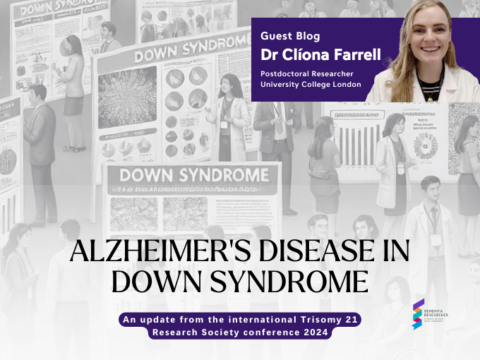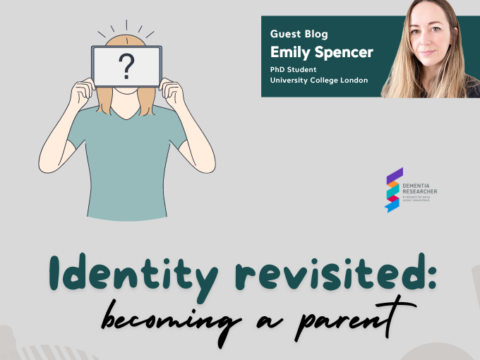![]() The first NICE guidelines on decision making and mental capacity: My experiences as a committee member with dementia in mind!
The first NICE guidelines on decision making and mental capacity: My experiences as a committee member with dementia in mind!
The National Institute for Health and Clinical Excellence (NICE) was set up in 1999 to provide guidance to the NHS. They aimed to increase equality of care across NHS organisations by providing recommendations to improve the quality of care. NICE are operationally independent of the government and NICE recommendations are written by independent committees. I myself was a member of the guideline committee who wrote the Decision Making and Mental Capacity Guideline that was published this week. You can find the guideline on the NICE website, alongside information on the committee itself, the research used to guide the recommendations and lots of resources designed to support people to use the guideline: https://www.nice.org.uk/guidance/ng108
Being on a NICE committee seems to (and is) a way of having a much bigger impact, across a much wider audience. NICE guidance is used across England, the UK and far beyond. I am not sure what first prompted me to apply for the committee. I think it might have been that a colleague and good friend had successfully applied to be a committee member for the new Dementia guidelines and she encouraged me to have a go. Importantly, I felt passionately that people with communication difficulties, for example with dementia, have the right to participate in decision-making, with the right supports to participate in those conversations.
If I am honest, I really didn’t think I belonged on this committee but when I got there I realised that most people there were just like me; passionate about people’s rights. There were two speech and language therapists on the committee (including me), a GP, a psychiatrist, a psychologist, nurses, occupational therapists, social workers, IMCA’s (Independent Mental Capacity Advocates) and four experts by experience. We met every few months for almost two years, each time discussing a new aspect of the guidelines and every meeting was a passionate debate which we attempted to tame into a set of recommendations.

The first thing to say is that the aim of this guideline was not to repeat the Mental Capacity Act legislation. In fact, the aim of all NICE guidelines is to use the best available research evidence to write recommendations for practitioners; specifically, health and social care practitioners. To do this the NICE team conducted a systematic review of all the literature using a search strategy and search terms related to each of the relevant questions being addressed by the guideline (NICE publish the methods for this online, and use the same approach across all guidelines). The questions were agreed in the scoping document set up prior to the guideline committee being established, but both the questions and search terms were again agreed with the committee. The scoping document (available on the NICE website) set out questions such as:
- What support for people is needed from health or social care professionals to enable them to make their own decisions?
- What interventions, tools and approaches can involve and support people, on the presumption of capacity, to make decisions for themselves wherever possible?
- What interventions, tools and approaches can support best interests decision making on behalf of people who have been assessed as lacking capacity to make a particular decision?
Consequently, the results of the literature searches were examined by the NICE team, and only studies considered to meet the standard set by the search team were included. (This basically means that they were looking for rigorous randomised controlled trials, of which there are few if any in relation to this area.) These were then examined and a summary of each study and its key findings presented to the committee. The most relevant findings were presented in relation to each question and the committee members were then able to use this information to write recommendations for clinical practice. The main reason I have gone through this description is to illustrate that there is a good chance that a lot of the literature relating to people with dementia is likely not to have met these criteria. We were also able to use information from expert presenters who attended the meeting. But of course, these experts didn’t cover everything.
Each meeting we attended was focused on a different question (outlined in the scoping document prior to the guidelines being written see examples above), until we had dealt with all the research questions and all the research literature. At these meetings, we would discuss the evidence and start drafting recommendations. The recommendations were discussed in smaller groups, then bigger groups, were revisited, re-discussed and taken to the NICE team to ensure the correct language had been used. Then revisited again, before they were sent out to stakeholders. They were revisited again after this and constantly revised to try to ensure they were meaningful, useful and reflected the research evidence. This included checking the use of words such as “must”, “should” and “could” – to reflect the level of evidence, and the law.

Many of the recommendations we wanted to make were not possible. Personally, I was keen to emphasise the value of communication training. Speech and language therapists have specialist skills in communication and can enable colleagues to improve their communication skills so they are able to apply these to support people to make decisions. Additionally, working with family members, who may have been donated power of attorney, to enable them to communicate with their loved ones, to be able to understand their preferences in relation to decisions that may arise. Advanced care planning could also be an area where speech and language therapists can equip people with a voice in their future healthcare decisions; the ultimate communication aid if you will. But there is little research evidence in these areas, and none that enabled us to write this type of recommendation. This is reassuring at the same time as being rather frustrating. We wouldn’t want any old passionate person to be writing these guidelines, but there remain large gaps in the guidelines that need to be filled. And the research recommendations make some provision by highlight some key areas where further research is required; particularly around the effectiveness of training programmes, and the effectiveness of interventions that work on supporting or improving decision making (such as speech and language therapy).
The NICE guidelines on decision making and mental capacity are the first step on this long journey to better implementation of the Mental Capacity Act. It is likely that there may be reviews and updates to the legislation itself, Deprivation of Liberty Safeguards being one unsurprising area of significant and impending change. This can only be a good thing. I often describe the Mental Capacity Act as a bill of rights for people with communication difficulties (and dementia). The first principle of the Mental Capacity Act explains that we must presume capacity unless there is evidence to the contrary. The idea being there needs to be evidence that for this decision, at this time the person lacks capacity. Many people with dementia have capacity to make many decisions. This legislation and the NICE guidance we have developed will become better over time as they are revised in light of new and improved evidence.
NICE are always looks for new committee members to find out more visit www.nice.org.uk
Author
Anna Volkmer is a Speech and Language Therapist and NIHR Doctoral Research Fellow working in Language and Cognition, Department of Psychology and Language Sciences, University College London. Anna is researching Speech and language therapy interventions in language led dementia.
You can follow Anna on Twitter Follow @volkmer_anna

 Print This Post
Print This Post




